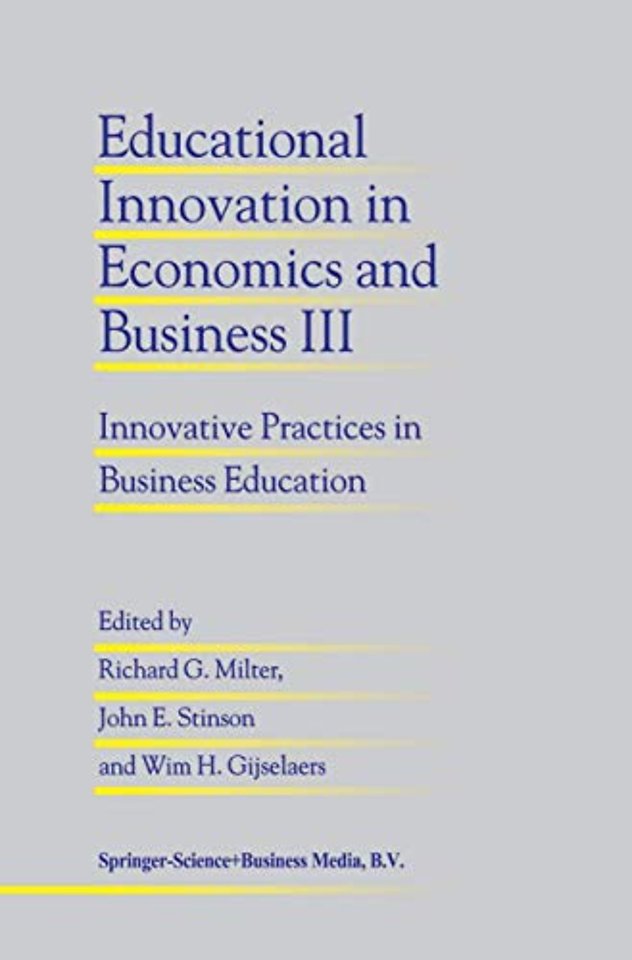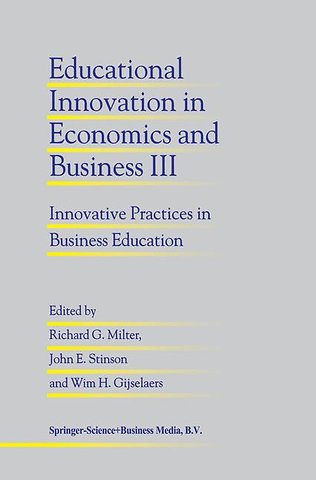Educational Innovation in Economics and Business III
Innovative Practices in Business Education
Samenvatting
Almost thirty years ago a friend involved in the education profession told me that in his estimation much more was "caught" by students outside of classrooms than was "taught" within those hallowed walls. This statement has stuck with me through years of personal schooling, working as a high school teacher, working in management, serving as a management consultant and trainer, and facilitating learning on university campuses across the US, eastern Europe, and Asia. Learning by doing is certainly something most people have experienced. But the fact that there is more opportunity to learn more things today as never before (with knowledge doubling every 20 months) makes learning by doing more complicated. As organizations move to respond to the rapid changes in their environments, people within those organizations must face the uncertainty and ambiguity that comes with such conditions. The one thing most futurists agree on is that the future will be very different than the present. Exponential change has become commonplace. Companies used to worry about redefining their goals and specific describing their place in an industry. Today, in order to survive, they must be constantly addressing the issues inherent in redefining their industries.







